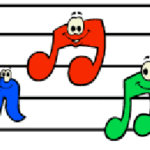 Researchers at Taipei Medical University, in Taiwan, explored the effectiveness of group music sessions to manage agitation in elderly persons with dementia.
Researchers at Taipei Medical University, in Taiwan, explored the effectiveness of group music sessions to manage agitation in elderly persons with dementia.
First, the details.
- 104 elderly nursing home residents with dementia were randomly assigned to a treatment group.
- Music therapy: 12, 30-minute group sessions, twice a week for 6 consecutive weeks
- Control group: Normal daily activities
- The participants were evaluated before the study, at the 6th and 12th group sessions, and at 1 month after the sessions.
And, the results.
- At each evaluation, music therapy was associated less agitation, physically non-aggressive behavior, verbally non-aggressive behavior, and physically aggressive behavior.
- A reduction in verbally aggressive behavior was shown at the 6th session.
The bottom line?
The authors concluded, “Nursing facilities for demented elderly persons [should] incorporate group music intervention in routine activities in order to enhance emotional relaxation, create inter-personal interactions, and reduce future agitated behaviors.”
It’s interesting that the effects of music therapy could still be measured 1 month after completing the study.
Researchers at St Vincent’s Hospital, in Athy, Ireland, recently reviewed 13 studies of music therapy in dementia and found that:
- Music therapy influenced the behavior of older people with dementia in a positive way by reducing levels of agitation.
- There was also a positive increase in mood and socialization skills.
They concluded that caregivers play a significant role in the use of music therapy in care of the elderly nursing residents.
Among complementary treatments for Alzheimer’s disease, Dr. James Galvin from the Alzheimer’s Disease Research Center at Washington University School of Medicine in St. Louis, Missouri lists several other benefits of music therapy:
- In particular, classical music can produce transient increases in cognitive performance (reasoning).
- Caregiver singing has improved patient well-being.
- Patients appear to regain skills necessary for activities of daily living.
- Singing increased patients’ intention, purpose, and competence to perform tasks and improve communication skills.
7/31/10 11:49 JR